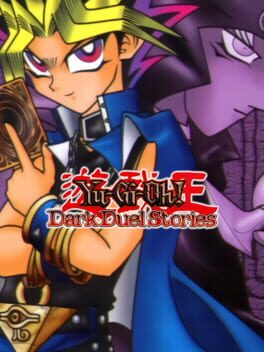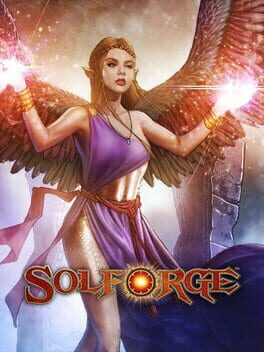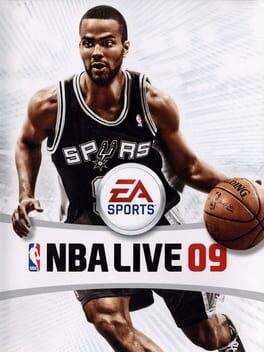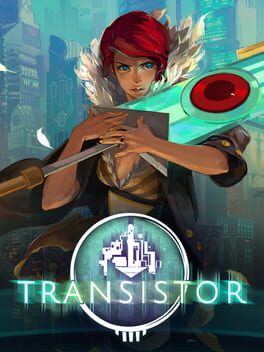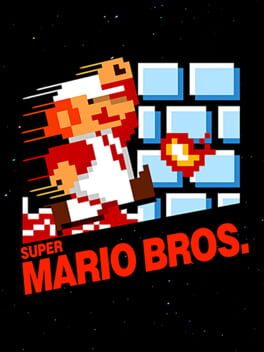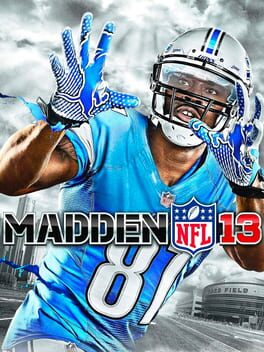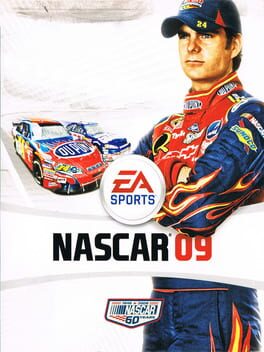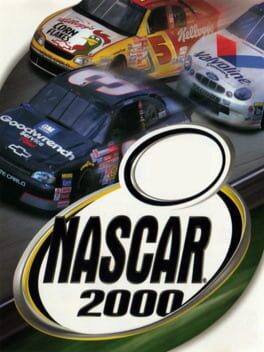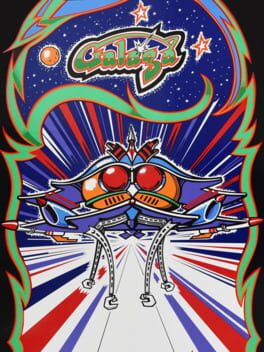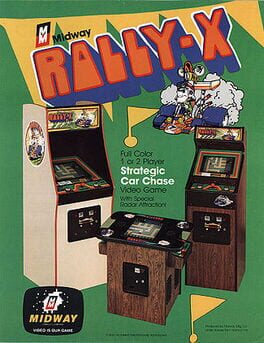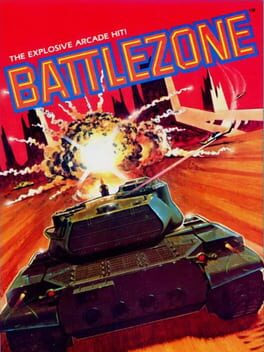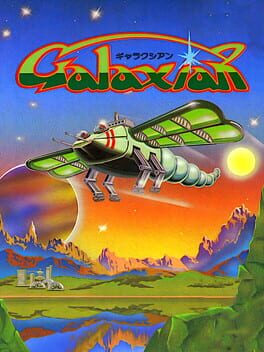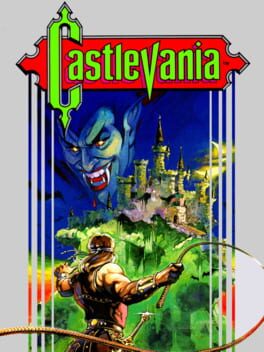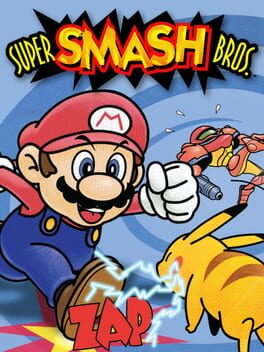FrozenRoy
There is, put simply, no good reason to play this game if it wasn't 2000 and you were desperate to play Yu-Gi-Oh but had literally no other way to. Effect monsters are essentially non-existent, the graphics are terrible, it plays very slow, and it isn't even that hard.
The reason I got this when I was younger was because it had a custom card creator, a hella cool idea that the series didn't use again. Problem is the card creator sucks! The fact everything is a normal monster means you basically just make something with big attack and the custom options are extremely limited in flavor and ability.
This game really isn't even worth trying to play.
The reason I got this when I was younger was because it had a custom card creator, a hella cool idea that the series didn't use again. Problem is the card creator sucks! The fact everything is a normal monster means you basically just make something with big attack and the custom options are extremely limited in flavor and ability.
This game really isn't even worth trying to play.
2016
Sorry Brian Kibler, I love ya but this wasn't it. People tried to argue this game had a better monetization model than Hearthstone, but anyone who played the game for more than 20 minutes can see this game had serious issues with its model, you got slightly more free stuff but with no good dust system there wasn't a strong way to convert that into what you want at will.
Another serious issue this game had that tied into it was power creep and power level issues, strong cards could absolutely crush weaker decks with no recourse and budget decks very rarely existed, no "face hunter" or (to use a Yu-Gi-Oh term) "Perfect Gadget" here. The card evolution thought was neat but more of a strategy game than a card game.
All of the servers for the game have been shut down, so it is basically impossible to try out even if you want to. But you didn't miss much.
Another serious issue this game had that tied into it was power creep and power level issues, strong cards could absolutely crush weaker decks with no recourse and budget decks very rarely existed, no "face hunter" or (to use a Yu-Gi-Oh term) "Perfect Gadget" here. The card evolution thought was neat but more of a strategy game than a card game.
All of the servers for the game have been shut down, so it is basically impossible to try out even if you want to. But you didn't miss much.
2008
Probably the biggest issue with this game is absolutely pathetic AI, the game has no idea what to do if you just go up the middle, turbo in and go for a lay-up/dunk. Defense is similarly pretty difficult, AI teammates can struggle to keep on the ball at times. The franchise mode is fine, but when you compare it to other games that you could buy it was nothing impressive. It simply lacks the gameplay to be a particularly fun basketball game, you'd be better off buying an older NBA Live game or an NBA 2K game.
2014
This review contains spoilers
Let's get the big positives out of the way first: Speaking on a visual and audio level, Transistor is amazing. The game features stunningly beautiful backgrounds that give the city setting impressive life merely from appearance. There's lots of little touches that look quite nice in the game, like the sparks as Red drags the Transistor around for example. This is combined with some very nice 2-D portraits and art with a distinctive and strong style, all of which is what drew me to have a lot of interest in this game!
On top of that this game has a beautiful soundtrack that is entirely worth jamming to even without the game, with Ashley Lynn Barrett providing some great vocals on certain tracks (including my favorite in the game, "Paper Boats"), in addition to some great instrumental tunes. For the instrumentals, I am particularly partial to the final boss theme "Impossible" which is a pretty funky techno-beat that kinda makes me think of a very modernized style of Mother 3 songs. It is well worth more than just one listen!
But once we get past the spiffy visuals and into the meat of the game, that's where it began to lose me. The combat system is actually really cool: All of your moves are "Functions" and therefor can be put into your 3 slots (Active, Upgrade and Passive) in any combination. This offers a lot of uses and combinations, which can be pretty fun to tinker around with. On top of that, you have access to the ability "Turn()" which lets you stop time to move and plan before performing hyper-accelerated options. All-in-all, the base customization and combat has good potential. But the game suffers from very easy difficulty: Turn + Crash + Spark, which are all abilities you will start with or get early, can slaughter the entire game without much hassle and so hurts your desire to customize because you can run through the game so easily that trying weird combos doesn't feel rewarding. From what I know, the combo I primarily used isn't even that strong. You're going to be slaughtering a lot of the game regardless of what you pick if you just abuse the basic mechanics, with the possible exceptions of the challenge rooms that force you into using very specific abilities (usually because they are intentionally abilities not meant to be well put together).
I only died twice in the entire game and neither were because of my opponents killing me outright, but because I only had two attacking moves on the final boss without thinking and so when I lost my first health bar (you have 4 health bars and each time you lose 1, 1 of your Functions overloads: The one with the most stuff on it specifically) I didn't have enough damage to finish them off. I simply made an ability I never even used that would overload first and won casually. Even aside from game overs there were only a few times the entire game I lost even one of my four health bars, I wasn't even being particularly challenged. It was hardly the worst combat system for this, but I didn't find myself particularly engaged outside of the challenge rooms and to an extent the final boss. My brief foray into Recursion didn't make the game particularly tougher or style changing, nor did the fact I had multiple Limiters on by the end.
But the story and character aspects were the main areas of major disappointment to me, in part because Transistor just has a pretty cool setup with this sprawling city of creative stifling, a constantly changing landscape and world due to widespread direct democracy (hard to get more direct than the very first OVC terminal giving you a 51/49 result on the weather while your sword-boyfriend complains there were only two options), with mysterious disappearances due to the Camerata, a mysterious group of four people who believe the constantly changing state of the city is terrible and seek to change it. Sounds really cool, right? Congratulations, that's all of what the game has to offer there!
Yeah that's my biggest issue, the game has a great setup but ultimately shoves it aside because the events of the game are not only essentially in the middle of the apocalypse, but also shove you specifically away from situations that could give much interesting insight, with the exception of Royce from the Camerata (who is still sadly too brief). The Camerata all have these really slick designs and could have a lot to them, but for example Grant (their leader) never gets any dialogue at all and just some light hints from other characters, Sybil (who is really great design-wise) basically just ends up in the psycho lesbian archetype without any other real personality traits. The backdrop of this lush city setting with its own unique culture, a governance we get some privy too, and all of that falls to the wayside extremely quickly in the game and basically just serves as window dressing. Quite frankly I was far more interested in all the stuff the game didn't let me see or wasn't interested in exploring than the main plot, which is rather thin. And while I do appreciate the gay / bi representation here...it amounts to a character whose entire status is basically being a crazy, lovestruck lesbian and tragic suiciding gays, I can't say I'm a big fan. Especially since there was a lot of interest in "city that stifles individual expression and seems to stress conformity vs. group made up 3/4ths of LGBT people seeking to oppose it".
It primarily ends up being a character focus on Red and her stuck-in-the-Transistor boyfriend Mr. Nobody, but this does lead to a somewhat awkward bit of story pacing where because Red is mute (something I wish the game explored more: I really feel like this game wanted a prologue or segments in the city before it all goes to shit!), Mr. Nobody serves as the primary vehicle for Red's character or ultimately makes it about him, which feels kinda odd to me? Red gets some pretty obvious stuff, I mean she's a singer who's been made mute and the world is going to hell around her the depression isn't hidden, but it ultimately comes across as rather surface level and largely brought up some by some stuff like the music...but that wasn't enough to elevate it THAT strongly, it is no Metal Gear Rising in terms of music adding to the story (largely because the story isn't strong enough to hold the music up rather than the other way around).
There's just a lot of interesting stuff that the game doesn't seem interested in, and it makes me sad. Royce ends up being the stand out character, with his amazing voice acting work by Sunkrish Bala being a big factor. I really want to see some more characters with this style of voicing. He probably has the most developed character in the game, he definitely has the best fight in the game, I really wish we got to see more than like 20 minutes of him in total or that the rest of the Camerata actually got something close to just letting him...talk and have dialogue or any form of insight with him (as with the Limiters' dialogue or reading his terminals). The characters you can learn about via the Functions are neat, but 80% of their stories boil down to the exact same format (they're an exceptional individual, they Do a Thing, it causes them to meet the Camerata and be killed) which makes them a bit...predictable and eh.
Overall, Transistor is a game with a vivid and lush feel, look and sound, but it lacks an equally vivid story that drags it down, and an interesting gameplay basis ended up being a more mediocre experience to me due to not really playing into the customization enough. It's worth a try if you're enamored with some part of the game (visual, audio or otherwise), particularly when it is on sale from its 19.99 price, but I would temper expectations when heading into it. For me, it was an average game I enjoyed slightly but which left me feeling disappointed at the end.
On top of that this game has a beautiful soundtrack that is entirely worth jamming to even without the game, with Ashley Lynn Barrett providing some great vocals on certain tracks (including my favorite in the game, "Paper Boats"), in addition to some great instrumental tunes. For the instrumentals, I am particularly partial to the final boss theme "Impossible" which is a pretty funky techno-beat that kinda makes me think of a very modernized style of Mother 3 songs. It is well worth more than just one listen!
But once we get past the spiffy visuals and into the meat of the game, that's where it began to lose me. The combat system is actually really cool: All of your moves are "Functions" and therefor can be put into your 3 slots (Active, Upgrade and Passive) in any combination. This offers a lot of uses and combinations, which can be pretty fun to tinker around with. On top of that, you have access to the ability "Turn()" which lets you stop time to move and plan before performing hyper-accelerated options. All-in-all, the base customization and combat has good potential. But the game suffers from very easy difficulty: Turn + Crash + Spark, which are all abilities you will start with or get early, can slaughter the entire game without much hassle and so hurts your desire to customize because you can run through the game so easily that trying weird combos doesn't feel rewarding. From what I know, the combo I primarily used isn't even that strong. You're going to be slaughtering a lot of the game regardless of what you pick if you just abuse the basic mechanics, with the possible exceptions of the challenge rooms that force you into using very specific abilities (usually because they are intentionally abilities not meant to be well put together).
I only died twice in the entire game and neither were because of my opponents killing me outright, but because I only had two attacking moves on the final boss without thinking and so when I lost my first health bar (you have 4 health bars and each time you lose 1, 1 of your Functions overloads: The one with the most stuff on it specifically) I didn't have enough damage to finish them off. I simply made an ability I never even used that would overload first and won casually. Even aside from game overs there were only a few times the entire game I lost even one of my four health bars, I wasn't even being particularly challenged. It was hardly the worst combat system for this, but I didn't find myself particularly engaged outside of the challenge rooms and to an extent the final boss. My brief foray into Recursion didn't make the game particularly tougher or style changing, nor did the fact I had multiple Limiters on by the end.
But the story and character aspects were the main areas of major disappointment to me, in part because Transistor just has a pretty cool setup with this sprawling city of creative stifling, a constantly changing landscape and world due to widespread direct democracy (hard to get more direct than the very first OVC terminal giving you a 51/49 result on the weather while your sword-boyfriend complains there were only two options), with mysterious disappearances due to the Camerata, a mysterious group of four people who believe the constantly changing state of the city is terrible and seek to change it. Sounds really cool, right? Congratulations, that's all of what the game has to offer there!
Yeah that's my biggest issue, the game has a great setup but ultimately shoves it aside because the events of the game are not only essentially in the middle of the apocalypse, but also shove you specifically away from situations that could give much interesting insight, with the exception of Royce from the Camerata (who is still sadly too brief). The Camerata all have these really slick designs and could have a lot to them, but for example Grant (their leader) never gets any dialogue at all and just some light hints from other characters, Sybil (who is really great design-wise) basically just ends up in the psycho lesbian archetype without any other real personality traits. The backdrop of this lush city setting with its own unique culture, a governance we get some privy too, and all of that falls to the wayside extremely quickly in the game and basically just serves as window dressing. Quite frankly I was far more interested in all the stuff the game didn't let me see or wasn't interested in exploring than the main plot, which is rather thin. And while I do appreciate the gay / bi representation here...it amounts to a character whose entire status is basically being a crazy, lovestruck lesbian and tragic suiciding gays, I can't say I'm a big fan. Especially since there was a lot of interest in "city that stifles individual expression and seems to stress conformity vs. group made up 3/4ths of LGBT people seeking to oppose it".
It primarily ends up being a character focus on Red and her stuck-in-the-Transistor boyfriend Mr. Nobody, but this does lead to a somewhat awkward bit of story pacing where because Red is mute (something I wish the game explored more: I really feel like this game wanted a prologue or segments in the city before it all goes to shit!), Mr. Nobody serves as the primary vehicle for Red's character or ultimately makes it about him, which feels kinda odd to me? Red gets some pretty obvious stuff, I mean she's a singer who's been made mute and the world is going to hell around her the depression isn't hidden, but it ultimately comes across as rather surface level and largely brought up some by some stuff like the music...but that wasn't enough to elevate it THAT strongly, it is no Metal Gear Rising in terms of music adding to the story (largely because the story isn't strong enough to hold the music up rather than the other way around).
There's just a lot of interesting stuff that the game doesn't seem interested in, and it makes me sad. Royce ends up being the stand out character, with his amazing voice acting work by Sunkrish Bala being a big factor. I really want to see some more characters with this style of voicing. He probably has the most developed character in the game, he definitely has the best fight in the game, I really wish we got to see more than like 20 minutes of him in total or that the rest of the Camerata actually got something close to just letting him...talk and have dialogue or any form of insight with him (as with the Limiters' dialogue or reading his terminals). The characters you can learn about via the Functions are neat, but 80% of their stories boil down to the exact same format (they're an exceptional individual, they Do a Thing, it causes them to meet the Camerata and be killed) which makes them a bit...predictable and eh.
Overall, Transistor is a game with a vivid and lush feel, look and sound, but it lacks an equally vivid story that drags it down, and an interesting gameplay basis ended up being a more mediocre experience to me due to not really playing into the customization enough. It's worth a try if you're enamored with some part of the game (visual, audio or otherwise), particularly when it is on sale from its 19.99 price, but I would temper expectations when heading into it. For me, it was an average game I enjoyed slightly but which left me feeling disappointed at the end.
1985
So I couldn't remember if I had beaten Super Mario Bros. 1 in full before (I have it on NES), end result is I decided to spend the night (okay, it's past midnight so technically yesterday so w/e) beating it. Since I was going for a pretty casual playthrough, I saved after each level (but NOT in level, nor did I reload unless I got a game over), but I did go warpless obv. It's Super Mario Bros. 1, there isn't much I can tell you about this iconic, 35 year old game that you don't already know, so this won't be too long.
The level design is pretty solid for the most part, it obviously isn't as expansive as something like Super Mario Bros. 3 but it is pretty solid as a basic platformer, in particular on the harrowing mushroom stages where you have to make jumps between mushroom platforms and various platforms that will see-saw or the like. The first level of most of the worlds tended to be some of the best imo, World 1-1 is truly a great tutorial style level and most of the time they tend to be the most focused on the platforming challenge where this game excelled.
The downside of level design imo was three areas. First off, the water levels aren't all that fun to play and are veeeery easy (I died once in them the entire run) so they end up feeling more like speedbumps. Secondly, the Bowser levels could be hit or miss, I liked the straight-forward ones that tended to be intense timing or platforming challenges while the ones that went for mazes felt like a fun idea but in too primitive of a form to be particularly enjoyable. Finally, 8-3 and 8-4 are bullshit, 8-3 just has too many Hammer Bros to feel comfortable finishing even after getting it down pat and while it is cool flavorfully it could have done more, and also while I didn't die to it whoever decided to end the enemy rush level with 2 1-tile platform jumps is eeevil. 8-4 actually isn't hard but the pipe puzzle just doesn't work very well imo, it's kinda easy to get your spot lost if you have to keep doing it over and is kind of a pain.
Story? It's like the first NES game ever, it's Mario, there's a princess, go save her, that's your story get out of here. Graphically, the game isn't as impressive as games with 35 years of sprite knowledge and ability (and usually 16-bit rather than 8-bit or anything) but I'd say it is fairly good for a NES game and it has some really iconic looks for a reason. The graphical leap to SMB3 is VERY notable but, like, this is one of the earliest NES games you'll find, so no surprise there. It ultimately looks nice. The sound is solid, with the soundtrack being fairly good (the Bowser's castle themes are nice), you've got classic power-up sounds, the works.
It's SMB1. If you are looking for a basic 2D platformer, it's got you covered pretty well, the controls are actually snappier than I thought they would be even if they are a bit odd compared to some later sMB-style games, there's plenty of challenge and until the last two levels it feels surprisingly fair. You won't find anything too advanced, but it also isn't baby feeling like a Kirby's Adventure. It is a game that feels like it holds up pretty well 35 years later, and not a lot of games can say that.
The level design is pretty solid for the most part, it obviously isn't as expansive as something like Super Mario Bros. 3 but it is pretty solid as a basic platformer, in particular on the harrowing mushroom stages where you have to make jumps between mushroom platforms and various platforms that will see-saw or the like. The first level of most of the worlds tended to be some of the best imo, World 1-1 is truly a great tutorial style level and most of the time they tend to be the most focused on the platforming challenge where this game excelled.
The downside of level design imo was three areas. First off, the water levels aren't all that fun to play and are veeeery easy (I died once in them the entire run) so they end up feeling more like speedbumps. Secondly, the Bowser levels could be hit or miss, I liked the straight-forward ones that tended to be intense timing or platforming challenges while the ones that went for mazes felt like a fun idea but in too primitive of a form to be particularly enjoyable. Finally, 8-3 and 8-4 are bullshit, 8-3 just has too many Hammer Bros to feel comfortable finishing even after getting it down pat and while it is cool flavorfully it could have done more, and also while I didn't die to it whoever decided to end the enemy rush level with 2 1-tile platform jumps is eeevil. 8-4 actually isn't hard but the pipe puzzle just doesn't work very well imo, it's kinda easy to get your spot lost if you have to keep doing it over and is kind of a pain.
Story? It's like the first NES game ever, it's Mario, there's a princess, go save her, that's your story get out of here. Graphically, the game isn't as impressive as games with 35 years of sprite knowledge and ability (and usually 16-bit rather than 8-bit or anything) but I'd say it is fairly good for a NES game and it has some really iconic looks for a reason. The graphical leap to SMB3 is VERY notable but, like, this is one of the earliest NES games you'll find, so no surprise there. It ultimately looks nice. The sound is solid, with the soundtrack being fairly good (the Bowser's castle themes are nice), you've got classic power-up sounds, the works.
It's SMB1. If you are looking for a basic 2D platformer, it's got you covered pretty well, the controls are actually snappier than I thought they would be even if they are a bit odd compared to some later sMB-style games, there's plenty of challenge and until the last two levels it feels surprisingly fair. You won't find anything too advanced, but it also isn't baby feeling like a Kirby's Adventure. It is a game that feels like it holds up pretty well 35 years later, and not a lot of games can say that.
2012
I played this game for about a week and then returned it. People joke about Madden games all being the same, but going from to this from even Madden 11 is a huge leap...off a cliff!
Connected Careers is a dud mode that doesn't get the appeal of Franchise Mode right, there's basic features gone like Create-a-Team, the gameplay isn't particularly improved, half of the soundtrack is re-used from Madden 11 with most of it being NFL Films pieces that could be used without much cost meaning gone are the days like Madden 07 where the game had a KILLER soundtrack, and the Wii version I played also had crap graphics. Play any Madden from Madden 05 to Madden 12 and you will have a superior experience to this lump of coal.
Connected Careers is a dud mode that doesn't get the appeal of Franchise Mode right, there's basic features gone like Create-a-Team, the gameplay isn't particularly improved, half of the soundtrack is re-used from Madden 11 with most of it being NFL Films pieces that could be used without much cost meaning gone are the days like Madden 07 where the game had a KILLER soundtrack, and the Wii version I played also had crap graphics. Play any Madden from Madden 05 to Madden 12 and you will have a superior experience to this lump of coal.
2018
Hades was initially a game I kept an eye on, but wasn't sure if I wanted to buy. Hearing friends talk about the excitement they felt encouraged me to buy it for 5 dollars off on Black Friday sale over other games I was considering and I can tell you right now I was not disappointed!
From top to bottom, Hades is an excellent game. It gets you right into the action with the plot and gameplay as Zagreus, half-human son of Hades, seeking to escape the Underworld for reasons unknown. One thing I appreciate about this game is how it treats the player as intelligent, as it uses smart and strong conversation pieces to establish relationships and dynamics easily in a story you're essentially dropped in the middle of. It only takes 1 or 2 interactions to get a basic understanding of any character while at the same time having pleasurable depth to explore. The game hits the ground running.
Gameplay is crisp and responsive, playing similar to Transistor as an isometric action game but much more smoothly and refined. Dash mechanics have particularly been removed, making the cooldown between dashes feel smoother and reducing the "hitch" it felt like Transistor's dash had. There is a ton of variation for all kinds of playstyles to be represented thanks to not only the greek god's boons but also a multitude of varied weapons with different playstyles, special equippable trinkets to modify what you do, a simple talent tree and other systems which layer on top of a great feeling combat system to add substantial depth to it all. Slashing through hordes of enemies with the blade while timing dashes, your special and your cast is exhilarating and tense.
The rewards of the rooms offer interesting gameplay choices in a variety of ways. There were times I did a run or two without even planning to try to make it out, but instead prioritized nectar rooms for NPC advancement, gemstones for unlockables and so on. Risk-reward management is emphasized and smartly woven into the gameplay. You'll never be screwed over just for making a choice, but you will have to deal with trade-offs and consider situationals. The decision making aspect is also important for the early rooms, as once you advance in skill level they will provide much less threat. Having reasons to approach ordering differently or to consider trade-offs therefor helps keep these interesting even as you get stronger while not being overwhelming to newcomers. It all comes together into an addictive package that I found myself returning to repeatedly even when I booted up my Switch with the intent to play other games.
Layered on top of the top notch gameplay is a strong story, which unfolds over multiple attempts and victories. One way this game feeds into its addictive gameplay loop is by granting you bits of story or character progress with each run: Even if you're not making headway gameplay-wise you'll be making headway into the overall narrative or into getting to explore the characters more. The story itself is pretty nice and feels a lot like one might expect the image of a "greek mythology" story to feel like, it is certainly no coincidence that Sisyphus is an NPC here, which is obviously fitting with the setting. Combine it with top notch character design (all of the gods are some GREAT interpretations!) and snappy dialogue that is pretty much entirely voiced (and this game has a LOT of dialogue, so it is impressive!) and you get a real winner.
My favorite character is probably Achilles. His gentle, weary voice really fits the characterization of a dead warrior looking back at what he's done with a different perspective and you get into his head quite a bit because he is the author of the game's bestiary and glossary which gives more insight. I won't go more into spoilers, but you eventually get to interact with him in more intricate ways as well. Characters can range from the more comedic, like Skelly, to much more straight edge series like Thanatos and helps keep the interactions feeling fresh. But the game keeps a consistent tone thanks to filtering through Zagreus' view and the lovely narrator keeping his drolling voice going. It is all very well done.
I'd be remiss if I didn't mention the game's graphics and ESPECIALLY its soundtrack! This game has some really good music all around, first time I really noticed is in the first areas boss as "Scourge of the Furies" is a pretty killer boss theme and later on "The Bloodless" also particularly stuck out to me as great, which isn't really a surprise given one thing Supergiant Games has always done well is having killer soundtracks. Who knew lutes and banjos would mix so well with greek rocking? I'll also use this section to give a shout out to the voice actors who really bring the characters to life. From Ares' soft spoken and mild mannered sadism to Achilles' world weariness and Megaera's husky tones. Visually, the game has very lush background art, exceedingly detailed models (to the point where some of the detail can only be seen by zooming in), distinctive character designs and some striking visual effects on things like attacks and item pickups. Even through over 30 attempts it hasn't stopped looking reeeeeally pretty!
For a brief mention of things I found flawed: While the area one bosses get mixed up with time, you never get new bosses for areas two and three. Because of that it can feel a bit more stale at the end. Personally, I wish they had an alternate boss option for those areas for just a little mixing up. While I didn't have a problem with it, clearing the story DOES require multiple runs and that won't be something everyone enjoys. And while I haven't gotten that far, from what I know some of the post-end game dumps for resources are kind of ridiculous. And, yeah, that's about all I've got for issues!
In short: Hades is the kind of game where I recommend playing it and giving it a try even if you aren't a traditional fan of its genre. It blends story with roguelike gameplay in a rather unique manner, the action gameplay itself is incredibly fun and addictive, it has all the bells and whistles of great graphics and music, and I'd say there's little in the way of large flaws.
From top to bottom, Hades is an excellent game. It gets you right into the action with the plot and gameplay as Zagreus, half-human son of Hades, seeking to escape the Underworld for reasons unknown. One thing I appreciate about this game is how it treats the player as intelligent, as it uses smart and strong conversation pieces to establish relationships and dynamics easily in a story you're essentially dropped in the middle of. It only takes 1 or 2 interactions to get a basic understanding of any character while at the same time having pleasurable depth to explore. The game hits the ground running.
Gameplay is crisp and responsive, playing similar to Transistor as an isometric action game but much more smoothly and refined. Dash mechanics have particularly been removed, making the cooldown between dashes feel smoother and reducing the "hitch" it felt like Transistor's dash had. There is a ton of variation for all kinds of playstyles to be represented thanks to not only the greek god's boons but also a multitude of varied weapons with different playstyles, special equippable trinkets to modify what you do, a simple talent tree and other systems which layer on top of a great feeling combat system to add substantial depth to it all. Slashing through hordes of enemies with the blade while timing dashes, your special and your cast is exhilarating and tense.
The rewards of the rooms offer interesting gameplay choices in a variety of ways. There were times I did a run or two without even planning to try to make it out, but instead prioritized nectar rooms for NPC advancement, gemstones for unlockables and so on. Risk-reward management is emphasized and smartly woven into the gameplay. You'll never be screwed over just for making a choice, but you will have to deal with trade-offs and consider situationals. The decision making aspect is also important for the early rooms, as once you advance in skill level they will provide much less threat. Having reasons to approach ordering differently or to consider trade-offs therefor helps keep these interesting even as you get stronger while not being overwhelming to newcomers. It all comes together into an addictive package that I found myself returning to repeatedly even when I booted up my Switch with the intent to play other games.
Layered on top of the top notch gameplay is a strong story, which unfolds over multiple attempts and victories. One way this game feeds into its addictive gameplay loop is by granting you bits of story or character progress with each run: Even if you're not making headway gameplay-wise you'll be making headway into the overall narrative or into getting to explore the characters more. The story itself is pretty nice and feels a lot like one might expect the image of a "greek mythology" story to feel like, it is certainly no coincidence that Sisyphus is an NPC here, which is obviously fitting with the setting. Combine it with top notch character design (all of the gods are some GREAT interpretations!) and snappy dialogue that is pretty much entirely voiced (and this game has a LOT of dialogue, so it is impressive!) and you get a real winner.
My favorite character is probably Achilles. His gentle, weary voice really fits the characterization of a dead warrior looking back at what he's done with a different perspective and you get into his head quite a bit because he is the author of the game's bestiary and glossary which gives more insight. I won't go more into spoilers, but you eventually get to interact with him in more intricate ways as well. Characters can range from the more comedic, like Skelly, to much more straight edge series like Thanatos and helps keep the interactions feeling fresh. But the game keeps a consistent tone thanks to filtering through Zagreus' view and the lovely narrator keeping his drolling voice going. It is all very well done.
I'd be remiss if I didn't mention the game's graphics and ESPECIALLY its soundtrack! This game has some really good music all around, first time I really noticed is in the first areas boss as "Scourge of the Furies" is a pretty killer boss theme and later on "The Bloodless" also particularly stuck out to me as great, which isn't really a surprise given one thing Supergiant Games has always done well is having killer soundtracks. Who knew lutes and banjos would mix so well with greek rocking? I'll also use this section to give a shout out to the voice actors who really bring the characters to life. From Ares' soft spoken and mild mannered sadism to Achilles' world weariness and Megaera's husky tones. Visually, the game has very lush background art, exceedingly detailed models (to the point where some of the detail can only be seen by zooming in), distinctive character designs and some striking visual effects on things like attacks and item pickups. Even through over 30 attempts it hasn't stopped looking reeeeeally pretty!
For a brief mention of things I found flawed: While the area one bosses get mixed up with time, you never get new bosses for areas two and three. Because of that it can feel a bit more stale at the end. Personally, I wish they had an alternate boss option for those areas for just a little mixing up. While I didn't have a problem with it, clearing the story DOES require multiple runs and that won't be something everyone enjoys. And while I haven't gotten that far, from what I know some of the post-end game dumps for resources are kind of ridiculous. And, yeah, that's about all I've got for issues!
In short: Hades is the kind of game where I recommend playing it and giving it a try even if you aren't a traditional fan of its genre. It blends story with roguelike gameplay in a rather unique manner, the action gameplay itself is incredibly fun and addictive, it has all the bells and whistles of great graphics and music, and I'd say there's little in the way of large flaws.
2008
NASCAR 09 finds itself with such a low rating for primarily one reason, which is to say it is unplayable. The control stick sensitivity is SO BAD that turning your car on PS2 is all but impossible! When I tried to play the game even with max stick sensitivity (a setting not seen in previous games like NASCAR Thunder 2003, likely because it already had good stick balance) I would have to smash the control stick so far to the side my finger would hurt mid-race to the point I had to take a break and I worried about breaking my controller. Not only is this unfun, it means you can't really make any kind of minor adjustments required for REAL racing and are basically limited to wide turns which makes a NASCAR race unplayable.
Because of that, I was not able to make it far into the game, but by all accounts this game had worse features than previous games in the series like NASCAR Thunder 2003 such as less stuff like Thunder Challenges, less unlockables, and a Career Mode that has interesting progression as you rise up the various racing series ranks but lacks the depth of Thunder 2003's management of development, advertisement and teams. Even if you prefer this game's style of Career Mode, you could just play NASCAR 2005: Chase for the Cup instead, although I would highly recommend NASCAR Thunder 2003 or 2004 over it. And leave this game in the trash bin where it belongs.
Because of that, I was not able to make it far into the game, but by all accounts this game had worse features than previous games in the series like NASCAR Thunder 2003 such as less stuff like Thunder Challenges, less unlockables, and a Career Mode that has interesting progression as you rise up the various racing series ranks but lacks the depth of Thunder 2003's management of development, advertisement and teams. Even if you prefer this game's style of Career Mode, you could just play NASCAR 2005: Chase for the Cup instead, although I would highly recommend NASCAR Thunder 2003 or 2004 over it. And leave this game in the trash bin where it belongs.
1999
NASCAR 2000 is a reasonably fun game that there is absolutely no reason to go back to past the date it was released. The biggest reason for this is simple: Lack of features. NASCAR 2000 has single race and season mode aaaand that's it. There's no Career or Franchise-style mode, which is the lifeblood of basically every sports game in my opinion, nor anything like race specific challenges, big time race recreations to play or what have you. All you can do is the bare minimum of racing around. Fun to waste some time with, but there is no depth or replayability which means there isn't a ton of a reason to come back to it. This is furthered by the fact that the game doesn't have a full selection of NASCAR tracks,
The gameplay feels very "arcade-y", looser than games like NASCAR Thunder 2003 or to use a contemporary racer F-1 World Grand Prix and more easily exploitable. Really, that's another major issue that NASCAR 2000 ends up having: The AI isn't very strong and therefor resorts a bit more to rubber banding than great racers, but with the arcade-y fun can still be nice to beat, with the end result being that popping it in for like two races can be fun but it isn't a long term experience and it isn't as fun as more modern games. The graphics are good for the time, making the cars fairly crisp and distinct and the courses feel fairly realistic for a Nintendo 64 experience, although I wouldn't say they look as good as F-1 World Grand Prix. Better draw distances on the cars, but that game had superior course detail and so on.
Overall, NASCAR 2000 was okay at the time and I have some fondness for it from my childhood, but even back then there were a ton of racers both simulation (F-1 World Grand Prix, Indy Racing 2000) and more "party" (LEGO Racers, Mario Kart 64) that stood out as superior to me. And as soon as NASCAR games evolved at all, this game became pretty outdated and meaningless. Not the worst experience but simply not worth checking out again.
The gameplay feels very "arcade-y", looser than games like NASCAR Thunder 2003 or to use a contemporary racer F-1 World Grand Prix and more easily exploitable. Really, that's another major issue that NASCAR 2000 ends up having: The AI isn't very strong and therefor resorts a bit more to rubber banding than great racers, but with the arcade-y fun can still be nice to beat, with the end result being that popping it in for like two races can be fun but it isn't a long term experience and it isn't as fun as more modern games. The graphics are good for the time, making the cars fairly crisp and distinct and the courses feel fairly realistic for a Nintendo 64 experience, although I wouldn't say they look as good as F-1 World Grand Prix. Better draw distances on the cars, but that game had superior course detail and so on.
Overall, NASCAR 2000 was okay at the time and I have some fondness for it from my childhood, but even back then there were a ton of racers both simulation (F-1 World Grand Prix, Indy Racing 2000) and more "party" (LEGO Racers, Mario Kart 64) that stood out as superior to me. And as soon as NASCAR games evolved at all, this game became pretty outdated and meaningless. Not the worst experience but simply not worth checking out again.
1981
By any modern viewpoint Galaga is an incredibly simple game, but a simple game is not a bad game. Anyone can look at Galaga, understand what's happening, pick it up, play it and have fun, while it still gives good reward to those who memorize it and put in time to develop skills. The core gameplay is classic and direct shmup, shooting down enemy fighters and avoiding shots, with the fun addition of intentionally being captured in order to save your ship and get a cool double ship power-up.
While it is very simple, the fact of the matter is that the game released on early 80s arcades and the Atari 7800. There simply wasn't a level of hardware to allow stuff that would come later. On top of that, Galaga is one of the first games upon which all others are built. When considering for the era the game actually has fairly good graphics for the time, even.
You can pretty much find it on any platform and it can run on anything, so if you wanna fire up a shmup and waste a few hours it is hard to go wrong with some old school Galaga.
While it is very simple, the fact of the matter is that the game released on early 80s arcades and the Atari 7800. There simply wasn't a level of hardware to allow stuff that would come later. On top of that, Galaga is one of the first games upon which all others are built. When considering for the era the game actually has fairly good graphics for the time, even.
You can pretty much find it on any platform and it can run on anything, so if you wanna fire up a shmup and waste a few hours it is hard to go wrong with some old school Galaga.
1980
The game is fine and the Special Flag is fittingly iconic, but I feel like it ages somewhat poorly compared to many of its contemporaries. When taken as a maze game, the AI is a bit annoying and bad compared to Pac-Man which released the same year and is simply a more complex and interesting maze game.
Then you look only two years later and see Ms. Pac-Man and Dig Dug release and Rally-X just ends up not looking all that special. Not awful, but I would be hard-pressed to return to it any time soon, while Pac-Man or Ms. Pac-Man have enduring quality.
Then you look only two years later and see Ms. Pac-Man and Dig Dug release and Rally-X just ends up not looking all that special. Not awful, but I would be hard-pressed to return to it any time soon, while Pac-Man or Ms. Pac-Man have enduring quality.
1980
I absolutely did not play this game in arcades, but instead on my computer when I was like 12-13, and it was extremely cool back then. The wireframe graphics give this game a really cool simulator feel that I believe could make for a great aesthetic with a modern take on it, the game is very simple and short (my biggest complaint) but has super addictive and arcade-y gameplay. It's very possible this game doesn't deserve this score but I played this game for plenty of hours, so I'm gonna give it the 7/10.
1979
I can't bring myself to give it lower than a 5/10, but there's really no reason to go back to it with Galaga out, which came out a mere 2 years later. Revolutionary for its time in hardware, Galaxian is fun enough to play but incredibly simplistic and clearly lacks the polish of Galaga.
Only being able to have one shot out at a time gives it less of a free flowing feel, no power-ups, less interesting patterns, it ends up with only half the shelf life of Galaga.
Only being able to have one shot out at a time gives it less of a free flowing feel, no power-ups, less interesting patterns, it ends up with only half the shelf life of Galaga.
1986
(Played via Castlevania Anniversary Collection on Nintendo Switch)
Castlevania is an absolutely classic game that I am fairly split on, largely because every fun moment feels like it is equalized by a frustrating one. Simon's Castlevania jump physics are wonky, sure, but you can adjust to them pretty fast. By the end of the first group of stages I had little trouble making jumps on platforms, for example. Far more trouble comes in the active game and level design which frequently does NOT feel designed with the slow mechanics in mind, most obvious with any number of small jumping or floating enemies that become infuriating to hit in a multitiude of positions. When the game begins to absolutely spam these, such as on Stage 17, the fun factor tanks and the frustration factor sets in.
This is unfortunate because when the game is more about slow and deliberate platforming with more "fair" enemies it is pretty fun! Or even ones where you can kind of out think them, such as Holy Water on the bats in Stage 16 (although boy that stage would SUCK without power-ups), or a fair amount of the earlier levels really. It feels like the game would do better to lean into this style more given the controls, rather than the more SMB1-ish platforming you'll see in stuff like the aforementioned Stage 17. The sub weapon balance is also all over the place to the point that avoiding accidentally picking up the many more useless weapons is an important part of playstyle. Garlic is very powerful, Holy Water is busted and the cross is good, avoid stuff like the dagger.
Difficulty in general is all over the place, leading to cases of "will it be incredibly tough or will you cheese it". Death without Holy Water is ridiculously challenging, Death with Holy Water just asks you to properly time jumping and attacking to stunlock him forever. Even the final boss' second form can be cheesed this way if you have at least one projectile upgrade, making 2/3rds of the final bosses able to be turned into total jokes, although I wasn't able to do that which led to a lot more pure tough attempts. Most of the other bosses are very easy, but the Level 4 boss gave me some real fits until I won almost effortlessly for reasons I don't understand, sometimes it feels like pure luck. It takes away that sweet difficulty game "YEAH, I BEAT THAT!" high at times.
As an extremely early NES platformer it doesn't exactly have a ton of story, but for what it does do it does well. Old NES games are often about working around the limitations of the hardware to allow the player's imagination to fill the gaps, which makes setpieces and the like more important. This is something Castlevania's an expert at! The stairway climb to Dracula is iconic to the point that soooo many Castlevania games use it and is well-done here, but there's also stuff like the intro with Simon arriving at Dracula's gates, the long vertical drop into the dungeons / catacombs, having a platform section start with just the night sky to the left and a little ledge you can walk to as if to gaze out at it, and my personal favorite: Simon's chugging walk every time you complete a section of stages, while Dracula's bat form flees.
This goes hand in hand with how well done this game's graphics and sound are for the NES. This game positively oozes aesthetic for a 1986 NES game with great spritework for the time, for example the crescent moon in the walk up to Dracula is a great look, and the entire game has a somewhat dark, gritty, gothic feel to it that makes you feel like you're playing out an old school vampire novel. The songs slap for the era with particular highlights of Vampire Killer (DOOT-DOOT-DO-DO-DO-DO), Poison Mind, Nothing to Lose and Black Knight. This game is up there with Kirby's Adventure and Super Mario Bros. 3 when it comes to graphics (though I'd definitely give it to SMB3 by a large margin) for NES graphics.
All in all, Castlevania is a game too flawed for me to feel comfortable calling good, yet with too many elements I enjoyed to call it back, giving it that coveted 5/10 "average" score. Masocore gamers will absolutely enjoy this more than most and it is a classic for anyone who enjoys that tough difficulty, people interested in Castlevania's roots or just plain good looking NES games will also enjoy checking it out if they can handle the uneven and frustrating difficulty. I'd say it's worth giving a look once, but I wouldn't exactly be jumping to come back to it.
Castlevania is an absolutely classic game that I am fairly split on, largely because every fun moment feels like it is equalized by a frustrating one. Simon's Castlevania jump physics are wonky, sure, but you can adjust to them pretty fast. By the end of the first group of stages I had little trouble making jumps on platforms, for example. Far more trouble comes in the active game and level design which frequently does NOT feel designed with the slow mechanics in mind, most obvious with any number of small jumping or floating enemies that become infuriating to hit in a multitiude of positions. When the game begins to absolutely spam these, such as on Stage 17, the fun factor tanks and the frustration factor sets in.
This is unfortunate because when the game is more about slow and deliberate platforming with more "fair" enemies it is pretty fun! Or even ones where you can kind of out think them, such as Holy Water on the bats in Stage 16 (although boy that stage would SUCK without power-ups), or a fair amount of the earlier levels really. It feels like the game would do better to lean into this style more given the controls, rather than the more SMB1-ish platforming you'll see in stuff like the aforementioned Stage 17. The sub weapon balance is also all over the place to the point that avoiding accidentally picking up the many more useless weapons is an important part of playstyle. Garlic is very powerful, Holy Water is busted and the cross is good, avoid stuff like the dagger.
Difficulty in general is all over the place, leading to cases of "will it be incredibly tough or will you cheese it". Death without Holy Water is ridiculously challenging, Death with Holy Water just asks you to properly time jumping and attacking to stunlock him forever. Even the final boss' second form can be cheesed this way if you have at least one projectile upgrade, making 2/3rds of the final bosses able to be turned into total jokes, although I wasn't able to do that which led to a lot more pure tough attempts. Most of the other bosses are very easy, but the Level 4 boss gave me some real fits until I won almost effortlessly for reasons I don't understand, sometimes it feels like pure luck. It takes away that sweet difficulty game "YEAH, I BEAT THAT!" high at times.
As an extremely early NES platformer it doesn't exactly have a ton of story, but for what it does do it does well. Old NES games are often about working around the limitations of the hardware to allow the player's imagination to fill the gaps, which makes setpieces and the like more important. This is something Castlevania's an expert at! The stairway climb to Dracula is iconic to the point that soooo many Castlevania games use it and is well-done here, but there's also stuff like the intro with Simon arriving at Dracula's gates, the long vertical drop into the dungeons / catacombs, having a platform section start with just the night sky to the left and a little ledge you can walk to as if to gaze out at it, and my personal favorite: Simon's chugging walk every time you complete a section of stages, while Dracula's bat form flees.
This goes hand in hand with how well done this game's graphics and sound are for the NES. This game positively oozes aesthetic for a 1986 NES game with great spritework for the time, for example the crescent moon in the walk up to Dracula is a great look, and the entire game has a somewhat dark, gritty, gothic feel to it that makes you feel like you're playing out an old school vampire novel. The songs slap for the era with particular highlights of Vampire Killer (DOOT-DOOT-DO-DO-DO-DO), Poison Mind, Nothing to Lose and Black Knight. This game is up there with Kirby's Adventure and Super Mario Bros. 3 when it comes to graphics (though I'd definitely give it to SMB3 by a large margin) for NES graphics.
All in all, Castlevania is a game too flawed for me to feel comfortable calling good, yet with too many elements I enjoyed to call it back, giving it that coveted 5/10 "average" score. Masocore gamers will absolutely enjoy this more than most and it is a classic for anyone who enjoys that tough difficulty, people interested in Castlevania's roots or just plain good looking NES games will also enjoy checking it out if they can handle the uneven and frustrating difficulty. I'd say it's worth giving a look once, but I wouldn't exactly be jumping to come back to it.
1999
Realistically speaking, this game probably deserves to be more of a 7/10. The roster is pretty small, although I appreciate they went with oddball choices like Ness and Captain Falcon even with a small roster, the gameplay is super busted past any casual level, almost every stage is a gimmick and for some reason you can't unlock reasonable stages that are present in the game like Final Destination.
But Smash Bros 64 does have its charm. While it is certainly the shortest single player experience in Smash Brothers, the Break the Targets stages are creative and fun and it's the only one with the pretty cool Board the Platforms minigame as well. I completely understand why they aren't around any more, imagine designing a unique one for 80+ characters, but it is a bit sad to see them gone. The game also looks rather good for the Nintendo 64 with vibrant colors on stages such as Yoshi's Island and Saffron City. The stages themselves are rather elaborate for the time, Saffron City might be jank but getting to see an iconic Pokemon area brought to full 3D (for the first time!) with tons of little flourishes was a treat. I've also, personally, always rather liked the hit effect sounds in this game.
But ultimately the fact is that what pushes it up that little extra bit to me is this: I used to play this all the time with my mom, easily staying up until 3 AM, and despite the fact she was terrible at it (she can beat NES Legend of Zelda easily but can't remember B/A button differences in Smash) we were able to have tons of fun, the game is good at making sure even if your skill levels are different you can find your own fun. Personal bias, sure, but they're cherished memories and simply make the game better for me personally. Not to mention all the times I did stuff like make my own CPU tournaments, or choose a character, set three of the same CPU in FFAs and record them down in a tournament across all the stages (10 points for 1st, 7 for 2nd, 4 for 3rd, 1 for 4th). It might be outclassed by pretty much every Smash game after, but it's still fun to come back to and everything someone could want at the time.
But Smash Bros 64 does have its charm. While it is certainly the shortest single player experience in Smash Brothers, the Break the Targets stages are creative and fun and it's the only one with the pretty cool Board the Platforms minigame as well. I completely understand why they aren't around any more, imagine designing a unique one for 80+ characters, but it is a bit sad to see them gone. The game also looks rather good for the Nintendo 64 with vibrant colors on stages such as Yoshi's Island and Saffron City. The stages themselves are rather elaborate for the time, Saffron City might be jank but getting to see an iconic Pokemon area brought to full 3D (for the first time!) with tons of little flourishes was a treat. I've also, personally, always rather liked the hit effect sounds in this game.
But ultimately the fact is that what pushes it up that little extra bit to me is this: I used to play this all the time with my mom, easily staying up until 3 AM, and despite the fact she was terrible at it (she can beat NES Legend of Zelda easily but can't remember B/A button differences in Smash) we were able to have tons of fun, the game is good at making sure even if your skill levels are different you can find your own fun. Personal bias, sure, but they're cherished memories and simply make the game better for me personally. Not to mention all the times I did stuff like make my own CPU tournaments, or choose a character, set three of the same CPU in FFAs and record them down in a tournament across all the stages (10 points for 1st, 7 for 2nd, 4 for 3rd, 1 for 4th). It might be outclassed by pretty much every Smash game after, but it's still fun to come back to and everything someone could want at the time.
